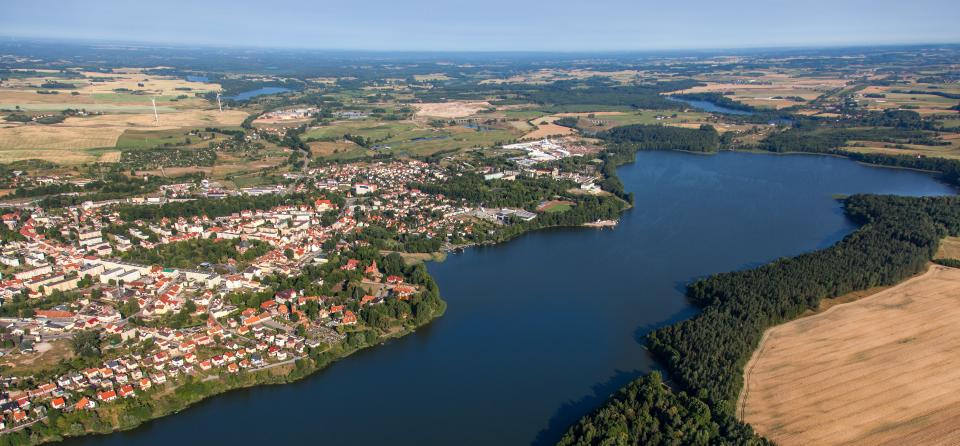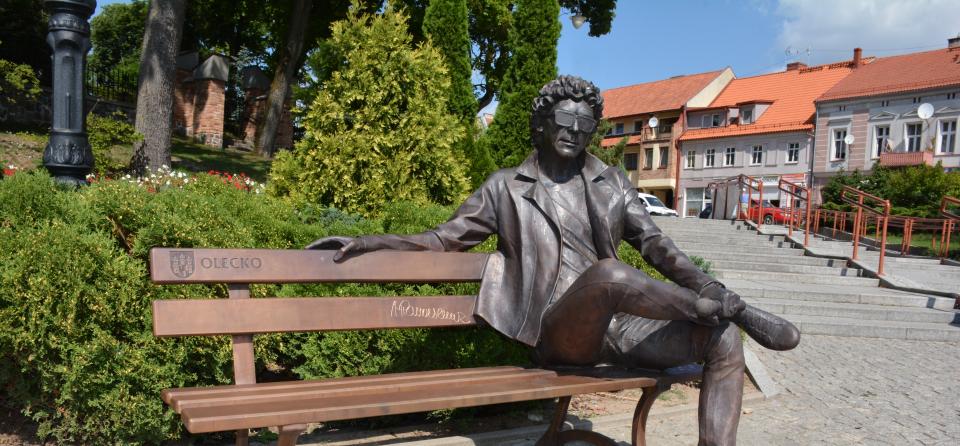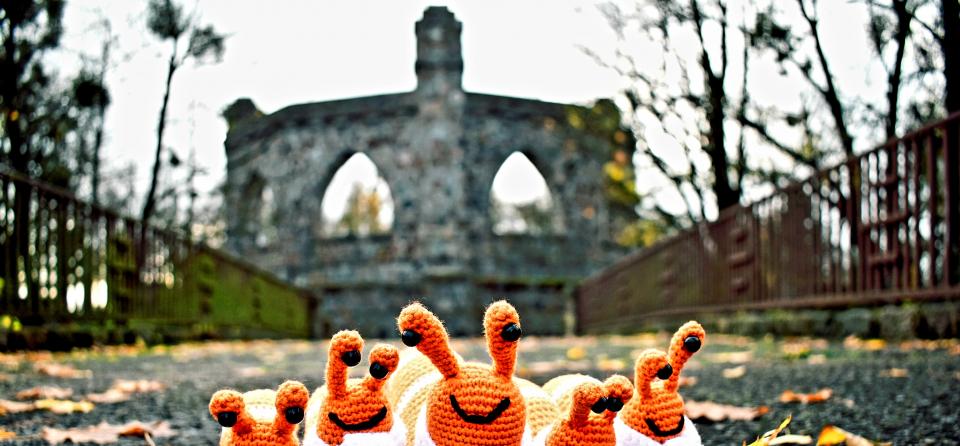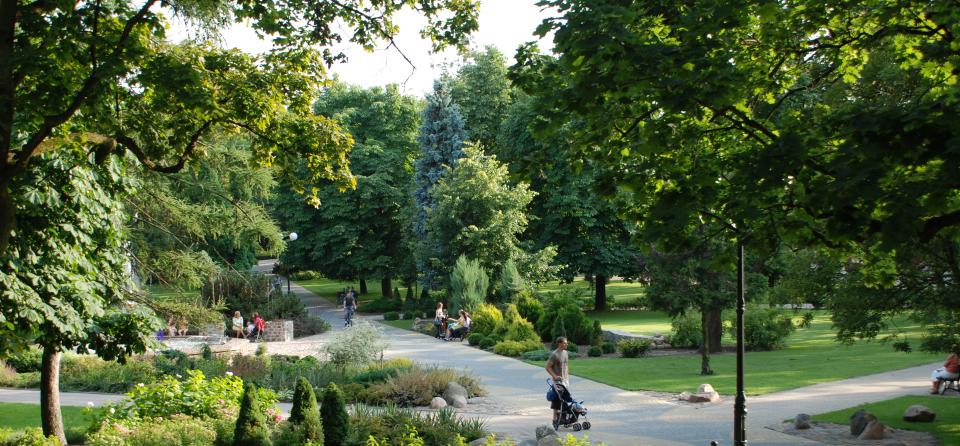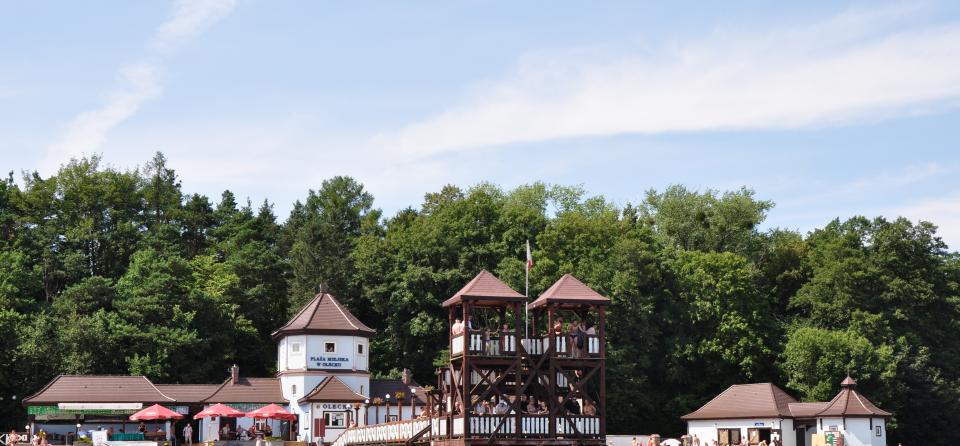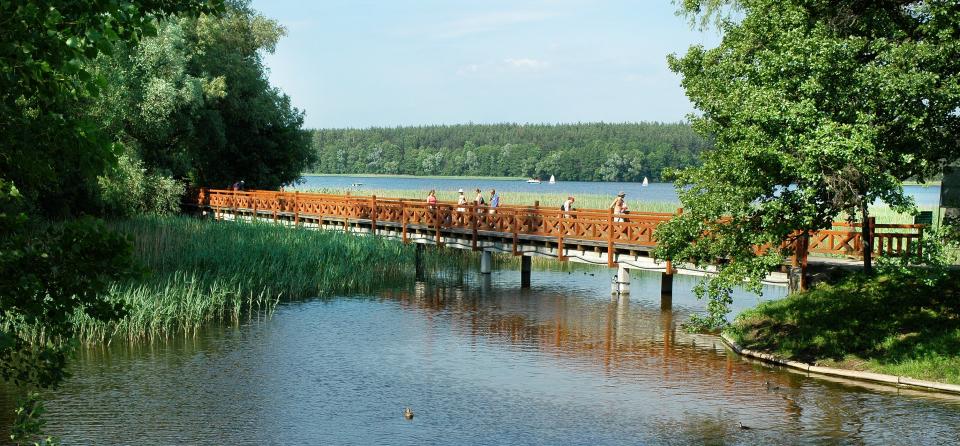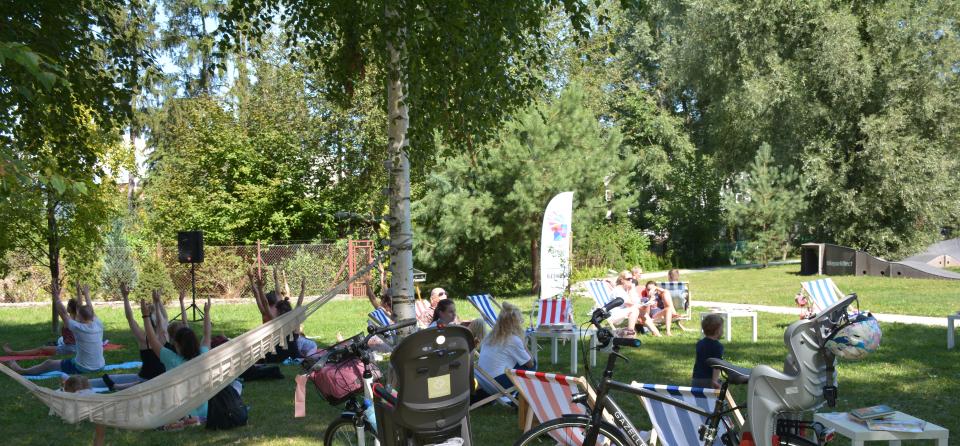Olecko
Member of the Polish National Network
Olecko is located in the north-eastern part of Poland, in the Warmińsko-Mazurskie Province. The town lies on the eastern verge of the Masurian Lakeland, on the route connecting the Great Masurian Lakes Region with the Suwalsko-Augustowskie Lakeland. The topography of the region was most influenced by glaciations, which resulted in a varied lie of the land. Olecko is located on Lake Oleckie Wielkie. The Lega River flows through the town.
Olecko Municipality is an urban-rural municipality with the total area of 266 km², whereas the town of Olecko itself has the area of 11.4 km². Apart from Olecko, the municipality is comprised of 44 villages. The municipality has a population of over 22 thousand, of whom almost 16.5 thousand live in Olecko. The town is the seat of the municipality authorities.
History
On the eastern shore of Lake Oleckie Wielkie, on a sunny slope, in the mid 16th century there was a hunting manor house (Jagdbude) called Oletzko. Allegedly, this is where in 1544 Duke Albrecht Hohenzolern (Markgraf Albrecht der Ältere von Brandenburg) met with King Sigismund August of Poland during a hunt. As the legend goes, it was then decided to found two towns: Marggrabowa (Olecko) and, on the other side of the border, Augustów.
Olecko was granted a town charter in 1560 under the name of Margrabowa. After the marketplace borders were designated (area of over 5.5 ha), an Evangelical church and a town hall were built. The town developed slowly due to a considerable distance from major trade routes and war damage that plagued Olecko in the 17th and 18th centuries: the Polish-Swedish Wars (in 1656 Poles achieved a victory over Swedes who were stationed here), the Tartar invasion in the years 1656-1657, Russian military incursion in 1757.
At the end of the 18th century the town witnessed a major evolution (at the time in Prussia). This short period of development was interrupted by World War I (1914-1915). As a result of the plebiscite of 1920, the town remained within German borders, and from 1928 to 1945 it was called Treuburg (Loyal Town). The interwar period saw a new period of dynamic growth. The town experienced growth as a thriving tourist, sports and recreation centre.
During World War II, the town suffered extensive damage (estimated at approx. 60%). The industry as well as the narrow-gauge railway network had ceased to exist.
Since 1945 the town has been within the Polish borders – in the years 1946-1975 it was the seat of a district.
As a result of the administrative reform, the district seat returned to Olecko in 1999.
Economy
The town of Olecko serves as the administrative centre of the municipality and district of Olecko. It is a multifunctional centre of supra-local importance. Olecko is a centre of trade and services, education, culture and entertainment, administration and finance. This is where all the offices are located. Leading town functions are administration and services, mainly trade, construction, recreation, tourism and leisure. Accompanying functions are: housing, support for development of services, communication and technical infrastructure. Dominant position is occupied by food-processing industries (meat processing companies, dairies, bakeries), wood products and shipbuilding industries and services of supra-local importance. Agricultural production is the major industry in the remaining area of the municipality (mainly animal husbandry, including pig farming, as well as environment-friendly agriculture and agritourism). The share of utilised agricultural area in Olecko municipality is 67.6%. As many as 1/3 of people of working age live off agriculture. Almost 200 national economy entities are registered here. Olecko municipality is an outlying area, which to some extent hinders its economic growth, whereas the proximity of the border fosters cross-border cooperation.
Surroundings
The town enchants its guests with its charming location on the Lega River, which picturesquely flows out of the lake wrapped around the town like a blue ribbon. The air in this region is among the cleanest in Poland. Among the contributing factors is the distant location from metropolitan centres and close to the 4 primeval forests: Augustowska, Romincka, Borecka and Piska. There is an ecological site in town called "A Long Bridge". It's a spawning ground and also a place where birds live and breed. In 2008 the landscape conservation area constituting 51,4 % of the municipality was established. There are three such areas in the municipality: the Oleckie Lakes Landscape Conservation Area, the Lega Valley Landscape Conservation Area and the Ełk Lakeland Landscape Conservation Area. The three lakes included in the silence zone are Oleckie Małe, Sedraneckie, whose adjacent forest is also a refuge for protected animals, and Dobskie Lake. The EKONET network has created an ecological corridor that runs through the town and municipality of Olecko. The corridor is international in nature and connects core areas.
Worth visiting
The most important cultural heritage sites in Olecko:
- Former Town Hall, 1818
- Wattle and daub tenement house from the second half of the 18th century
- Watermill from 1895
- Tenement houses from 19th/20th century
- Neo-Gothic church from 1859-61 and a chapel from the second half of the 19th century
- Castle relics from the 16th to 18th century, remnants of earth fortifications.
- Neo-Gothic building of the former district authorities
- Remnants of a war memorial from 1927
- School building from 1925 and a former hospital
- Evangelical cemetery with war sections
- Water tower from 19th/20th century
- Evangelical church complex, at present St Andrew Bobola Roman Catholic church: brick church from 1831-1833 and parish house from the beginning of the 20th century (Gąski)
- Evangelical church complex: Church and parish house from 1926 and Evangelical cemetery, 19th century (Szczecinki)
- World War I Evangelical cemetery (Zajdy)
Sports and Recreation
The attractive location of the Olecko's sports facilities in the vicinity of the park and lake translates into excellent conditions for active recreation and a variety of sports. Olecko offers unique opportunities for active recreation. Tourists can make use of a sports and recreation complex located in a historic park, directly adjacent to the shore of Lake Oleckie Wielkie. The complex includes: seven tennis courts, two beach and volleyball courts, a football pitch with an artificial surface, an athletic and football stadium, a sports and entertainment hall with Lega swimming pool, Skocznia municipal beach, a skate park with a cycling and inline skating track, an outdoor gym, around-the-lake Wiewiórcza Path and campsite, as well as a war memorial from 1927. Olecko was awarded the title of European City of Sport 2015 by the European Association of Sports Capitals (ACES Europe) in the category of towns up to 25 thousand residents.
Events
Among the most important events in the town are:
- Polish National Beach Volleyball Tournament for the Mayor’s Cup
- Swimming Marathon on Lake Oleckie Wielkie
- Przystanek Olecko – a flagship interdisciplinary event of the region since 1994, a huge promotion of Olecko and the Olecko region. In the programme: creative workshops, concerts, performances, shows, events of recreational, sports and ecological nature
- Masurian Meetings with Folklore – Festival Meetings commened in 1998. The aim of the Masurian Meetings with Folklore is to show the wealth of folk culture in its multinational aspect, as well as integration through artistic activities and direct contacts. Over the few years since 1998, in addition to our native regions, we have learned about the folklore of the Czech Republic, Croatia, Latvia, Russia, Lithuania, Belarus and Germany.
- Olecko Milk and Honey Festival
- Municipal Harvest Festival
- SZTAMA meetings with art
- Oleckie Zderzenia ze Słowem i Dźwiękiem POEZJI GRAM (Olecko poetry festival)
- One Instrument Festival
- Active Festival Olecko – the festival cover five thematic areas devoted to: art, relaxation, workshops, active life and family. Each of them offers numerous attractions in SLOW atmosphere.
Tourist Information
Regional Cultural Centre in Olecko "Mazury Garbate"
Plac Wolności 22, 19-400 Olecko
tel/fax (87) 520 49 48, it@um.olecko.pl
Cittaslow representation
Karol Sobczak – Mayor of Olecko
um@um.olecko.pl
Sylwia Wieloch – Manager of Cittaslow Olecko
